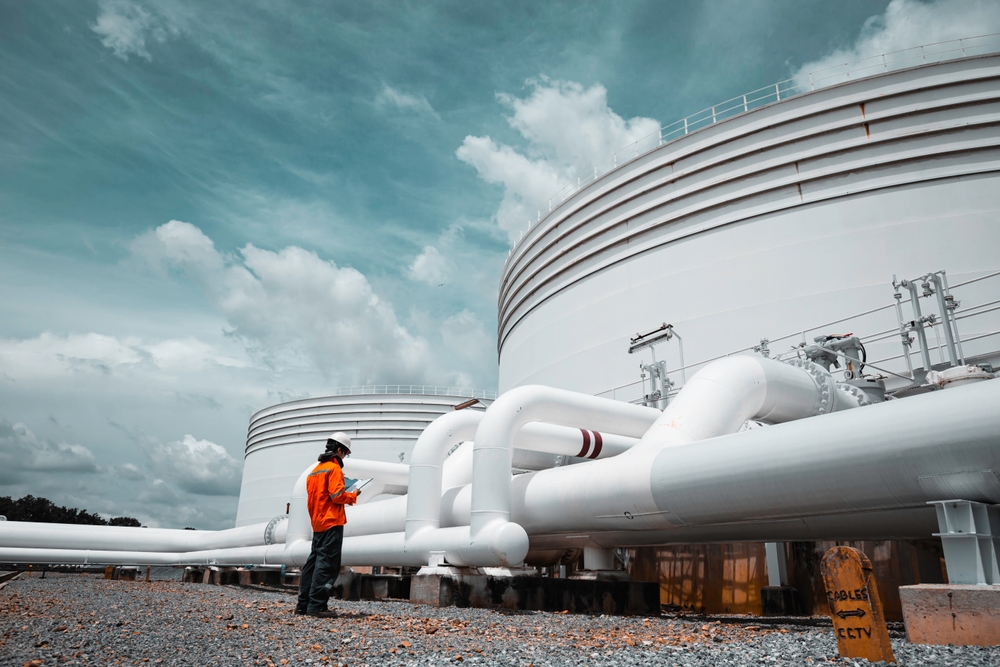Dynamic Simulation of Oil & Gas Reservoirs Course
Introduction:
This training on dynamic oil and gas reservoir simulation is necessary for petroleum practitioners aiming to improve their professional qualifications in reservoir engineering and management. Prospective participants will find this course particularly useful, as it comprehensively covers the theory and practice of reservoir dynamics, focusing on the efficient use of simulation tools to enhance oil and gas recovery.
Participants will learn the key aspects of reservoir engineering, including the description of the reservoir, its attributes, and the need for effective safeguarding. The training will provide a detailed exposition of key issues such as dynamic reservoir simulation, modeling, and the components and practices of simulation techniques.
They will attend practical classes with modern simulation technologies, enabling them to accurately forecast the complex aspects of reservoir behavior and make well-structured decisions regarding reservoir development and management. This dynamic training provides practitioners with a new mindset to tackle petroleum reservoir dynamics in the changing environment of the oil and gas industry.
Objectives:
At the end of this dynamic oil and gas reservoir simulation course, participants should be able to:
- Understand basic elements of reservoir engineering for oil and gas.
- Employ various strategies for effective reservoir optimization.
- Define reservoirs and their salient features.
- Apply reservoir engineering concepts, including simulation.
- Utilize dynamic modeling tools for practical applications.
- Assess petroleum fluid flow in reservoir evaluation.
- Improve efficiency and skills in simulation training.
- Design and analyze dynamic reservoir models.
- Maximize performance using sophisticated simulation techniques.
- Make informed decisions for effective reservoir management.
- Evaluate operations using simulation models.
- Increase recovery through good simulation practices.
- Integrate geological and engineering data into models.
- Use simulation software to simulate project development.
- Identify and mitigate risks in reservoir engineering and management.
- Implement best practices to control reservoir pressure and production.
- Formulate enhanced oil recovery (EOR) methods with simulation assistance.
- Recognize factors affecting performance due to reservoir heterogeneities.
- Conduct sensitivity studies on analyzed reservoir properties.
- Stay updated on new possibilities offered by simulation tools.
Training Methodology:
- Case studies
- Hands-on exercises
- Interactive simulations
- Group discussions
- Real-world project analysis
- Software training
- Problem-solving workshops
- Expert guest lectures
- Q&A sessions
- Peer collaboration
Course Outline:
Unit 1: Fundamentals of Oil and Gas Reservoir Engineering:
- First acquaintance with rock properties and basic principles of oil and gas reservoir engineering.
- Definition and characteristics of oil and gas reservoirs.
- General ideas on reservoir rock and fluid properties.
- Understanding reservoir performance through pressure and temperature.
- Principles of fluid flow in the reservoir and phase behavior.
- Introduction to material balance equations.
- Essential parameters for volumetric calculations of reservoirs.
Unit 2: Oil and Gas Reservoir Management:
- Reasons for effective management of oil and gas reservoirs.
- Efficient methods for reservoir management.
- Tools for extracting oil and gas from reservoirs.
- Importance of oil and gas well location and spacing.
- Strategies to prevent reservoir pressure loss.
- Enhanced Oil Recovery (EOR) technologies and their applications.
- Risk evaluation in reservoir activities.
- Contribution of geoscience information to reservoir management practices.
Unit 3: Oil and Gas Reservoir Simulation:
- Understanding oil and gas simulation and its significance.
- Overview of simulation training hardware and software.
- Essential steps for constructing a reservoir simulation model.
- Input data requirements for reservoir simulation.
- Performing and converging dynamic models of oil and gas reserves.
- Designing simulations and analyzing feedback from tests.
- Sensitivity analysis and uncertainty quantification methods.
- Role of reservoir simulation in managerial decision-making.
Unit 4: Dynamic Modelling of Oil and Gas Reservoirs:
- Basic rules of oil and gas reservoir dynamic modeling.
- Incorporating geological and engineering data into models.
- Addressing reservoir heterogeneities.
- Reservoir simulation of multi-phase flow and dynamics modeling.
- Importance of matching historical data in dynamic models.
- New technologies for reservoir performance simulations.
- Scope of dynamic models for field development planning.
- Successful examples of dynamic reservoir modeling.
Unit 5: Petroleum Dynamics Applications for Oil and Gas in the Future:
- Contribution of petroleum dynamics to reservoir management.
- Using dynamic models to appraise reservoir efficiency over time.
- Predicting reservoir future through simulation.
- Measures for field development and production optimization.
- Reservoir dynamics and production forecasting.
- Guidelines for dynamic reservoir management: obstacles and solutions.
- Costs and benefits of reservoir simulations.
- Innovations and new trends in petroleum dynamics and simulation.



.jpg)

.jpg)
.jpg)














